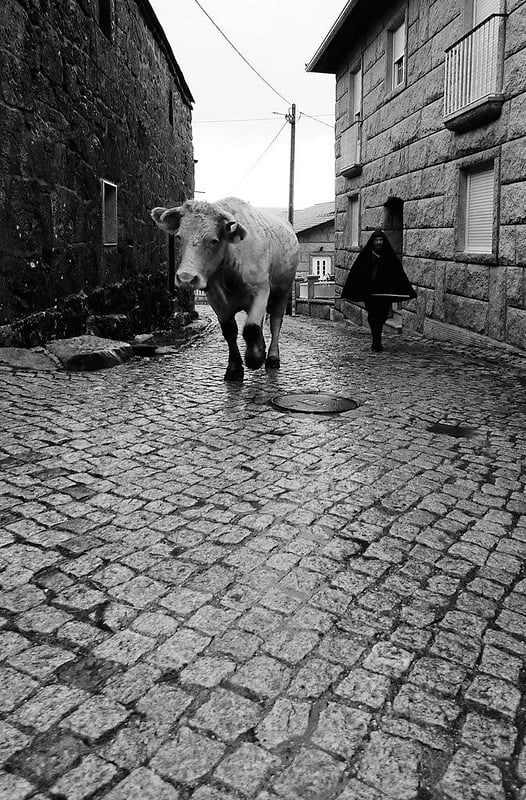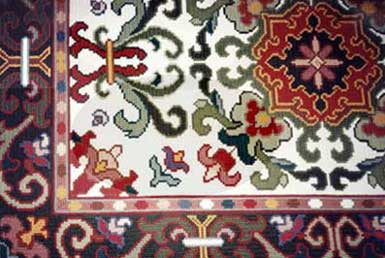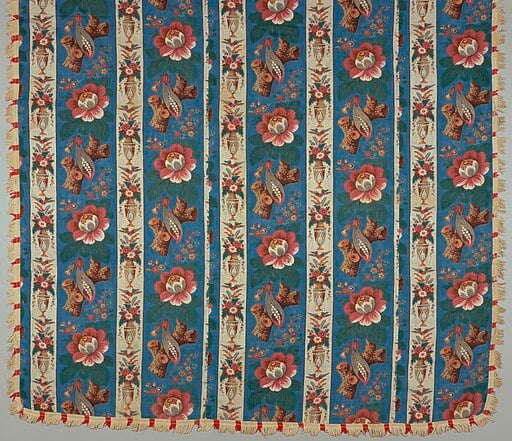With centuries of tradition and a growing focus on sustainability, Portuguese textiles are now recognized worldwide for their quality, creativity, and commitment to social and environmental responsibility. From the historic factories of the North to the small artisanal workshops scattered across the country, the Portuguese textile legacy is a true testament to know-how passed down from generation to generation. In this article, we’ll explore this rich heritage, highlight some of Portugal’s most emblematic textiles, and suggest souvenir options to take a piece of this tradition home with you.
The Portuguese Textile Industry
The textile industry is one of the pillars of the Portuguese economy, responsible for around 15% of the country’s exports. The northern region, particularly between Braga, Guimarães and Porto, is the beating heart of textile production in Portugal. In these areas, modern production techniques coexist with traditional methods and create a perfect combination of innovation and cultural heritage. The practices are also socially and ecologically responsible, a feature that makes Portuguese textiles especially attractive to those looking for quality and sustainability.
The Evolution of Portuguese Textiles
The history of the textile industry in Portugal dates back to the 18th century, with the arrival of cotton and machinery imported from Brazil, then a Portuguese colony. At the time, Lisbon was the center of cotton production, which quickly expanded to other regions. In the 19th century, Portugal began to explore the production of linen, with fibers imported from Hamburg, Germany and started to specialize in the production of linen fabrics in the Guimarães region, where the abundance of small rivers facilitated the natural dyeing process.
Curiously, while cotton production became industrialized, linen remained a domestic activity, with families weaving their own fabrics on home looms. This artisanal legacy can still be seen in workshops that keep the traditional techniques alive, now applied to modern, sophisticated garments.
Sustainability and Innovation in the Textile Industry
Portugal is at the forefront of sustainable practices in the textile sector. The country’s environmental legislation requires companies to comply with strict European and international standards, which guarantees the sustainability of production methods. Organizations such as CITEVE play a key role in offering technical support and encouraging innovation. Through programs such as RESET, which promotes equality and scientific excellence, the Portuguese industry has focused on improving recycling, reducing water and energy consumption, and developing intelligent textiles and new production techniques.
Famous Portuguese Textiles
“Made in Portugal” textiles are synonymous with quality and durability. Whether in clothing, decoration, or accessories, Portuguese products offer a unique sensory experience, combining softness, beauty, and comfort. Here are some of the country’s most iconic textiles, which can be purchased as souvenirs and bring with them a part of Portugal’s culture and history.
Linen Sheets and Towels
Linen is one of Portugal’s oldest and most emblematic materials, especially produced in the Guimarães region. Known for its soft and breathable texture, Portuguese linen is prized for its incomparable quality. It’s common to find handmade linen sheets with delicate embroidery and designs that hark back to Portuguese tradition. For an authentic souvenir, look for linen tablecloths or bath towels with typical motifs, such as flowers and geometric patterns, which add a touch of elegance to any setting.
Wool Blankets from Serra da Estrela
The blankets produced in Serra da Estrela are true artisanal masterpieces. Made from the wool of Bordaleira sheep, a breed native to the region, these blankets are known for their thickness and comfort. The traditional fuzzy blankets, woven on handlooms, are ideal for cold winter days, providing warmth and coziness. As well as being practical, they are an authentic representation of Portuguese pastoral culture and make an excellent gift for those looking for something genuinely Portuguese.

João Pedro Almeida,
Flickr
Arraiolos Carpets
These carpets, made in the Alentejo town of the same name, are world famous for their intricate hand embroidery. The technique, which dates back to the 17th century, was inspired by Persian carpets and adapted to local tastes and materials. The rugs are made with wool and feature floral and geometric designs that reflect Portugal’s history and folk art. To buy an Arraiolos rug is to take home a piece of traditional Portuguese textile art.

Alcobaça Chita
Chitas are cotton fabrics printed with vibrant colors and floral patterns, characteristic of the city of Alcobaça. Originally imported from India during the Discoveries, chitas were adapted to the Portuguese aesthetic and became popular in clothing and decoration. Today, they are used to make bedspreads, curtains, tablecloths, and even traditional clothing. Alcobaça’s chitas continue to enchant with their colorful patterns, making them a perfect souvenir for those who appreciate textiles with history.
Egyptian Cotton Bath Towels
Portugal is one of the largest producers of high-quality bath towels, using Egyptian cotton known for its softness and durability. Made in modern factories that respect environmental standards, these towels are extremely absorbent and comfortable. They are an excellent choice for those looking for luxury and sustainability in a single product.
Other Suggestions for Textile Souvenirs
In addition to the items already mentioned, there are other Portuguese textile options that are worth exploring:
Burel cloaks – made of wool, they are traditionally worn by shepherds in the mountains and have a rustic yet sophisticated appearance. Burel is a resistant and waterproof fabric, ideal for winter coats and accessories.
Embroidered cushions with regional motifs: handmade, the cushions feature embroidery representing various regions of Portugal, such as Minho and Alentejo, offering a taste of local traditions.
Kitchen textiles: dishcloths, aprons, and oven gloves with embroidery or prints of Portuguese tiles are practical and aesthetically pleasing souvenirs.
Over and Out
Portuguese textiles are pieces of a rich and diverse culture that combine tradition and modernity. Attention to detail, sustainability, and respect for artisanal techniques make textiles from Portugal an ideal choice for those looking for high-quality products with cultural significance. When you buy a Serra da Estrela blanket, an Arraiolos rug, or a chita from Alcobaça, you take home a piece of Portuguese history.


